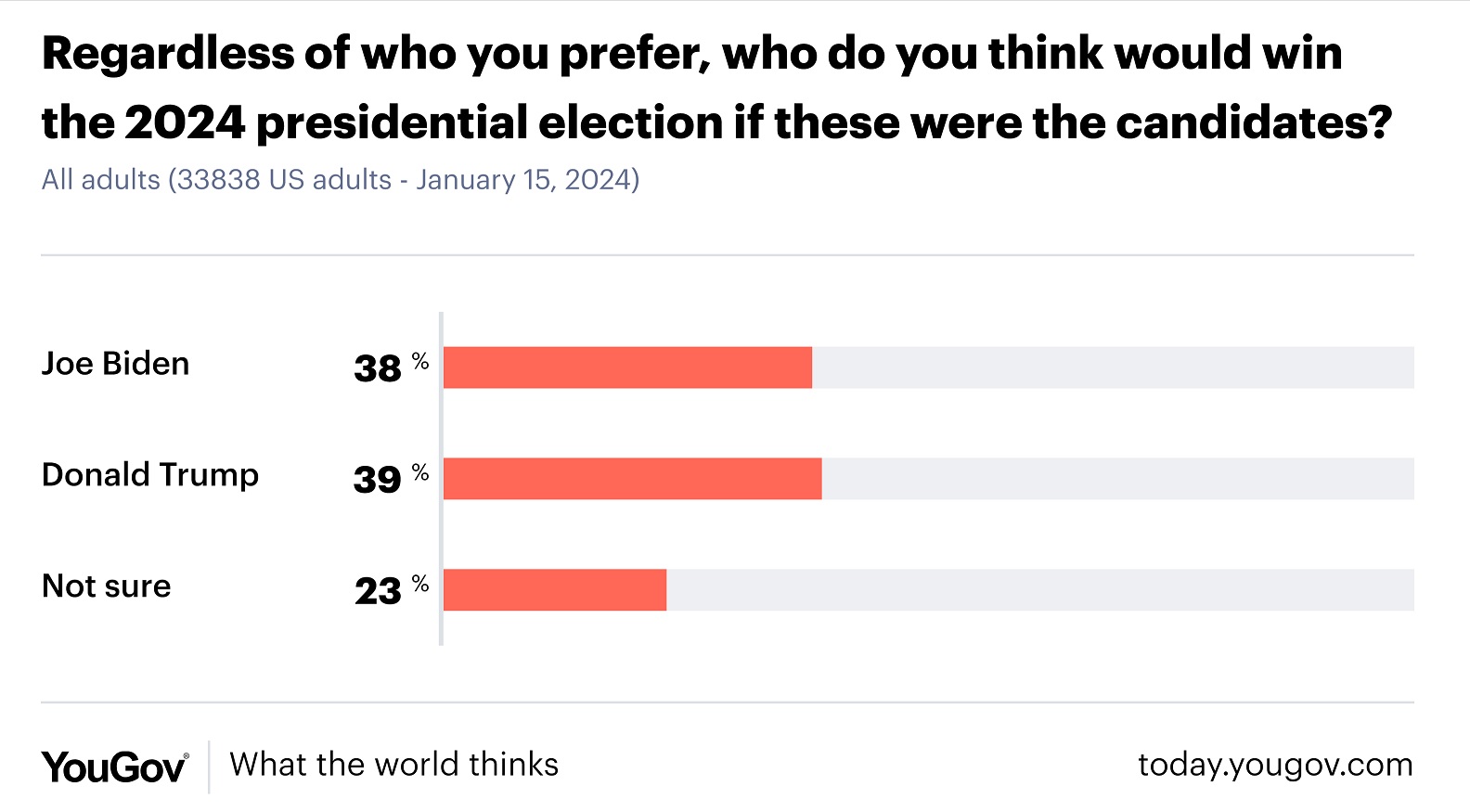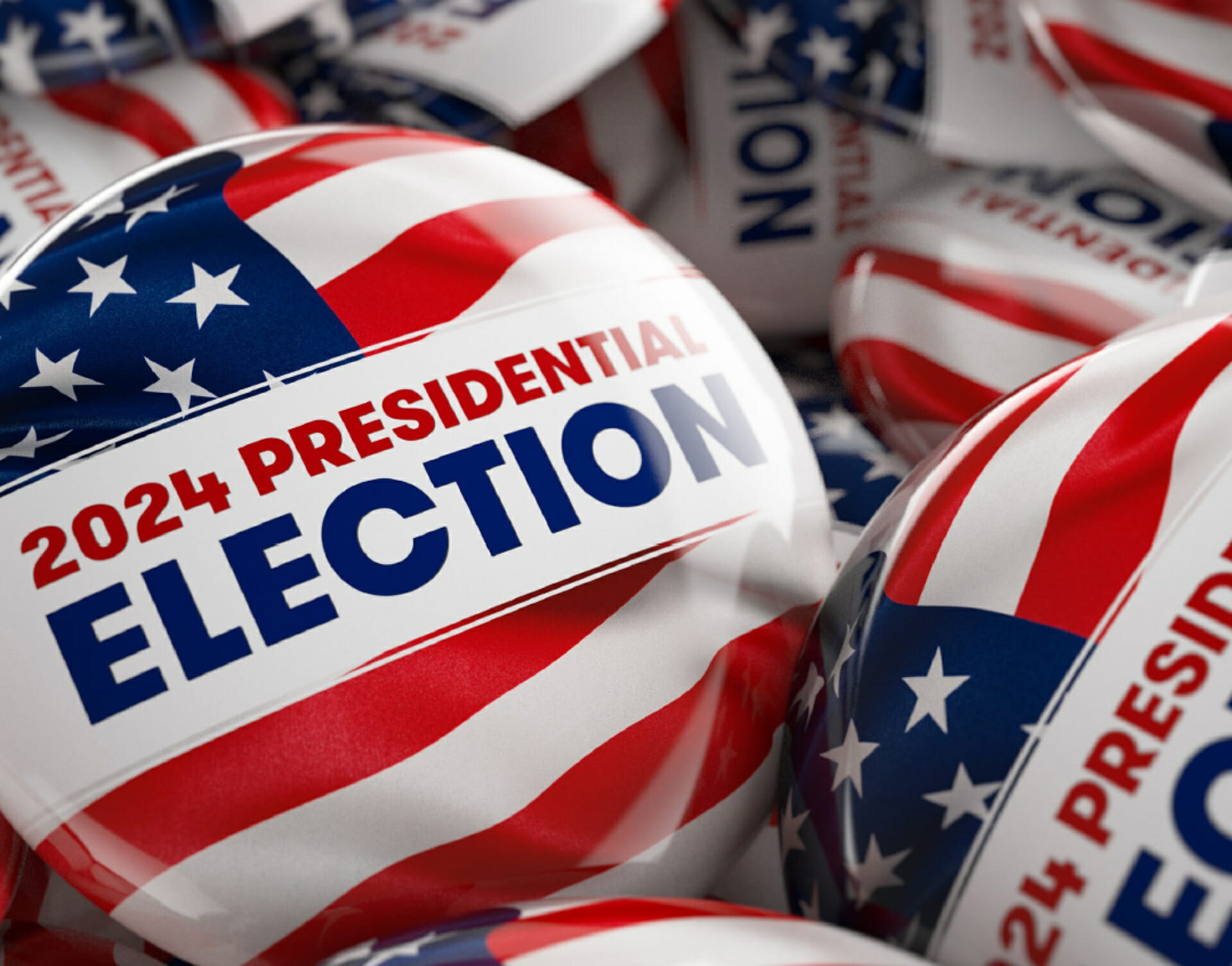
A recent poll by The Economist/YouGov presents a divided perspective on potential nominees for the 2024 presidential race in the United States. According to the poll, 39% of respondents predicted that former President Trump would beat President Biden if they were the nominees for their parties, with 38% favoring Biden and 23% unsure of the outcome. (Photo: yougov)
Findings reveal uncertainty as Trump and Biden vie for support in upcoming presidential race
A recent poll by The Economist/YouGov presents a divided perspective on potential nominees for the 2024 presidential race in the United States. According to the poll, “Regardless of who you prefer, who do you think would win the 2024 presidential election if these were the candidates?”, 39% of respondents predicted that former President Trump would beat President Biden if they were the nominees for their parties, with 38% favoring Biden and 23% unsure of the outcome, with 33,838 adult respondents.
In another survey also shed light on the split within the American populace with regard to candidate support. Despite the prediction of Trump’s victory, 43% of respondents expressed support for Biden, while an equal 43% backed Trump. This leaves a small fraction of 6% in the “other” category, with 5% uncertain and 3% declaring that they wouldn’t vote.
Further insights from the poll indicate that 54% of Americans anticipate Trump to be the GOP nominee, with Republicans largely leading this expectation at 76%. Among Republicans and Republican-leaning independents, 65% expressed their support for Trump in the hypothetical primary, indicating a strong hold on the party’s base.
READ ALSO: Former President Donald Trump Appeals To Voters To Support Him Amid Upcoming Caucuses
The survey also highlighted differences in confidence levels across political affiliations. While the majority of Republicans seemed sure of Trump’s nomination, only 45% of Democrats shared the same sentiment. Independents, on the other hand, exhibited a higher belief in Trump’s nomination at 53%, with 35% undecided and 13% in favor of another candidate.
The survey, undertaken on January 15th, with 33,838 US adult respondents portrays the collective voice of a substantial body of American citizens. As the electoral drumbeat grows louder, these insights from the survey provide a valuable snapshot of the prevailing political climate, offering a glimpse into the expectations and inclinations of the electorate.
READ ALSO: Biden Administration’s Struggle With Trade Agreements Imperils Efforts To Counter China
























